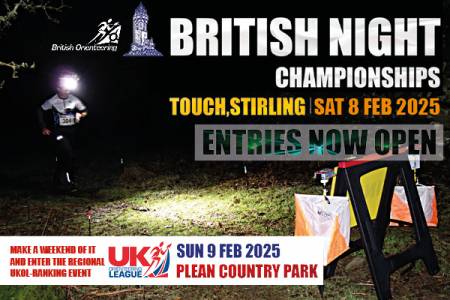An Interview with Anastasia Mahlych W16, a junior orienteer from Ukraine, sharing her experience of coming with her Mum, Kateryna, from their home in Ukraine to the UK.
(*Title inspired by a comment made by Anastacia's mum, Kateryna, “You have many words for rain here in Britain”.)
Ric: Anastasia, please can you tell me a little about your normal home life in Ukraine and what your school/interests are.
Anastasia: In Ukraine I lived in Irpin, a town near Kyiv, and every day in the morning I went to school, which was a 15-minute walk from me. I studied in the 9th grade and had to have exams in May. After school, I took all the necessary things and went to training to a large sports complex in the centre of Kyiv. 1.5 hour by bus and by tube - but it was worth it! The trainings were long and difficult - 3 hours, including physical exercises... I returned home tired, but really happy! And every weekend, my squad "Kyiv region" and I went outside Kyiv for a "forest" training. So, 6 times a week in trainings, 6 times a week to see teammates, 6 times a week to get a lot of emotions. And, of course, our squad travelled a lot in Ukraine to competitions or training camps, where we trained, won and took hundreds of pictures. At home I also walked our dog every morning (we have black-and-white Newfoundland dog), and fed the cats (we have three cats, found them just in the street when they were tiny kittens). I also wanted to have a parrot or a hamster/guinea pig but we decided that cats could eat them all. I also helped my grandmother in her garden, planted greens, broomed away the leaves in the fall and watered flowers. This was my usual life in Ukraine until February 24.
Ric: Obviously, you and your mum Katia, have made your way over to the UK in recent months, if it’s OK, could you tell me about when and how this all happened?
Anastasia: On February 24 I woke up at 5 am because of tons of messages from my friends that the war has just begun. It was so hard to believe that, but I went to wake up my parents to tell everything. My mom was awaken too. It was very scary, because all the time we heard the sounds of missiles flying very low and there were loud explosions somewhere not far from us. My mother and I started packing things very quickly and could not pack bags in any way, because we did not understand what to take and what not. In 3 hours, my mother and I headed for Western Ukraine by our small car. We thought that everything would be over in a week or so, and we would be back. Dad stayed with our dog and three cats in Irpin, as he did not want to leave the house and animals and also hoped that this would not continue for a long time. My grandmother also refused to go, she didn't want to leave her home and we couldn't convince her to join us. She stays in Kyiv now. My mother and I drove for a very, very long time, there was no gas anywhere, and people on the roads were shocked and panicked. We saw many people running with cats and dogs in their hands, some people were cycling really fast with huge rucksacks. Everywhere we heard women and kids crying. It took a lot of willpower for my mom to stay calm and continue driving. In the night we arrived to Khmelnitskiy, a city in Western Ukraine. All hotels and apartments were full with people, but a manager of one hotel let us sleep in a hall, on the floor near the reception desk. He gave people as many sleeping mats and blankets as he had, he put chairs together so the little babies could sleep there. So, we travelled almost 3 days to Chisinau, Moldova, waited at the border for 7 hours, crossed the border at 4am. Then, the border guards treated us with hot pies, and we became very sleepy. Mom had already been driving for 22 hours from Khmelnitskiy and was almost falling asleep, so we spent the night in the car. In the morning we arrived in Chisinau to people who sheltered us and did everything for our convenience. We stayed there for a week and then decided to go to Northern Ireland as we have friends there. The car had to be left in Moldova. We travelled by train to Romania, spent a night with volunteers, then in Romania we boarded a plane and flew to Italy, with a transfer of 5 hours we flew to Dublin, caught a bus and ended up in Northern Ireland, Belfast.
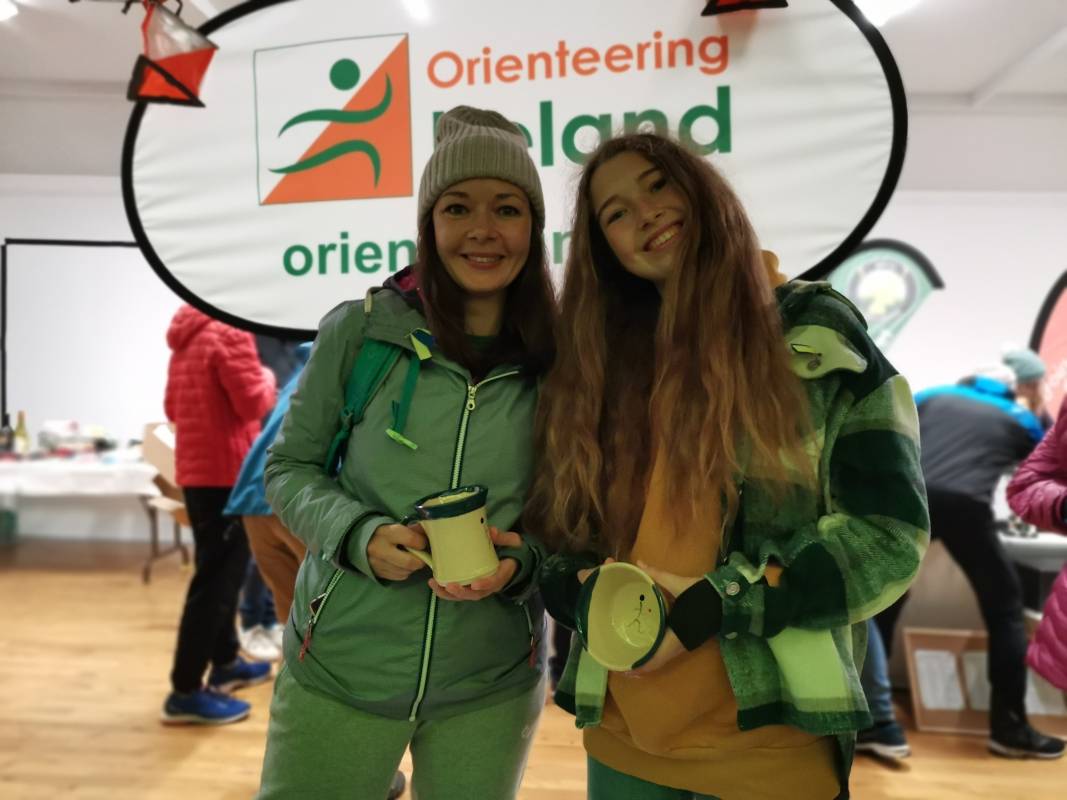
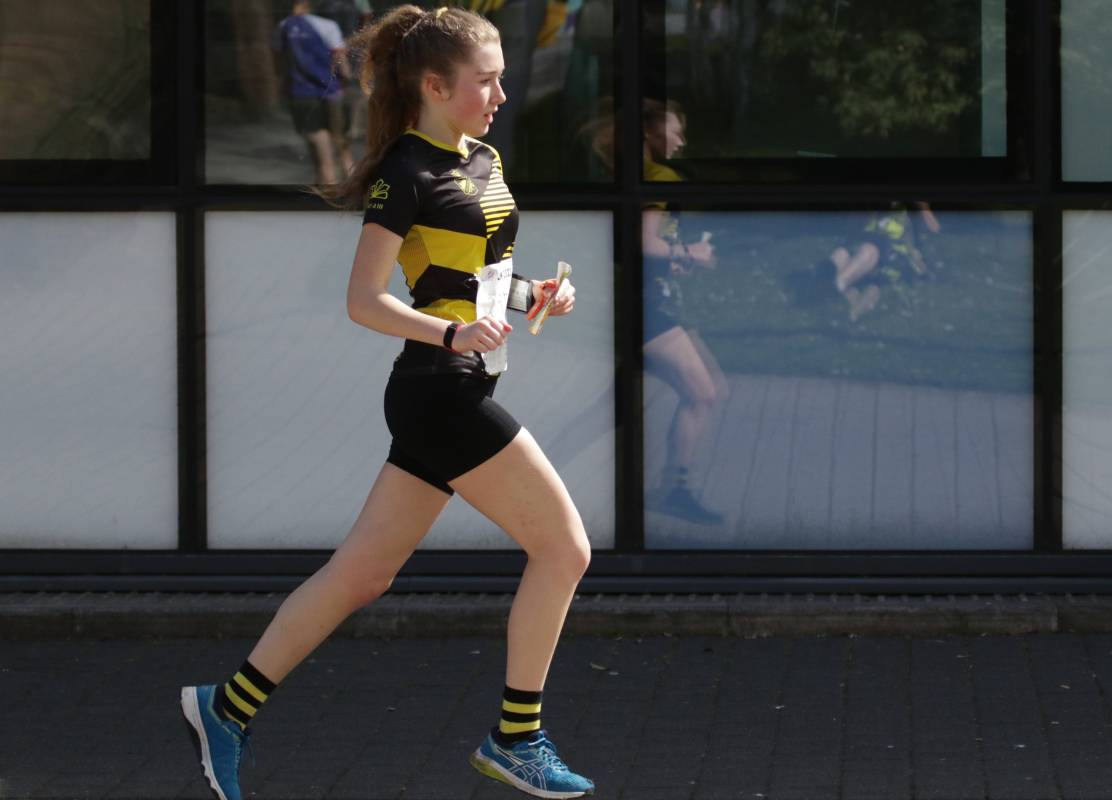
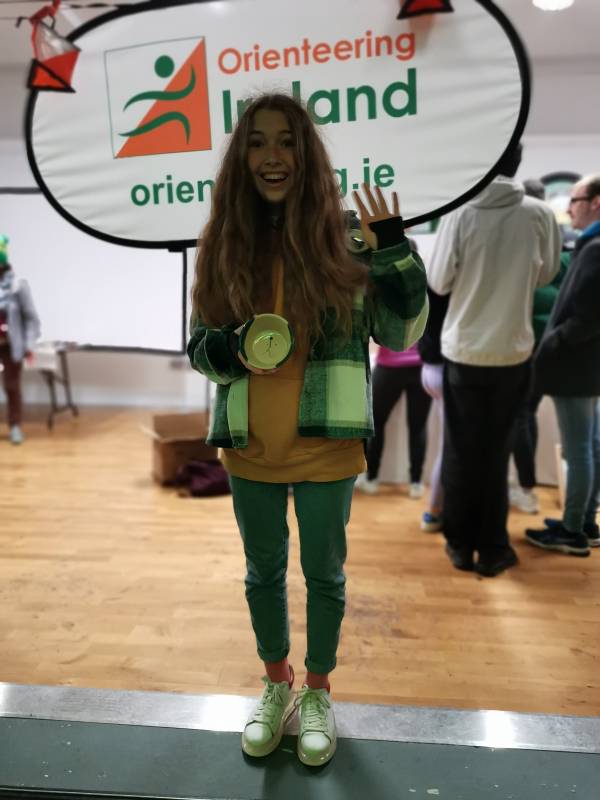
Ric: How did you come about getting involved in Orienteering when you arrived in Belfast? Did you contact a club, or did they find you?
Anastasia: My Ukrainian coach Andriy Podgaietskiy from Kyiv Region O-team helped me throughout the journey. When I arrived in Belfast, he contacted the IOF representative, who gave me an email of Philip Baxter, with whom I corresponded about which club I could join here in Belfast, and he gave me an email of Stephanie Pruzina from LVO club. Stephanie is a great person, she drove me and my mom to my first training session in Hillsborough, I was a bit nervous and excited about it. Later Stephanie registered me with JK and invited us to stay with her and her husband Mark in Wales. I appreciate it very much because without their help I could not even dream about taking part in this event!
Ric: You are now a registered member of Lagan Valley Orienteers. As the newest member, do you feel part of the club?
Anastasia: I understand that I am a member of LVO club now, I was welcomed with kindness, other members helped us a lot with competitions, supported us, and together with LVO members I participated in races. If Stephanie and Mark Pruzina, Wilbert and you, Ric, didn't give us a lift to all races here as well as all the necessary equipment - we would never have got there. However, I still don't feel as a part of the club. Maybe because there are no peers with whom I could communicate much, or because I wear the uniform of my Ukrainian squad, maybe I just need more time. But the fact that I am in this club makes me very happy.
Ric: Are there similarities with club and national competitions here in the British Isles with what you know in Ukraine?
Anastasia: Yes, everything is very similar. Organization, planning of starts, issuance of maps on the start, etc. There is a couple of differences: in Ukraine we do not use whistles, so it is not necessary to have them, and the awarding is different from that in the UK. In Ukraine we have awarding pedestals with 1,2,3 places for each group of boys and girls, they are given medals, certificates, sometimes cups.
If we talk about club competitions, it just depends on the concept of what "club" competition means. We don't have club competitions in Ukraine, we have club traininngs (with a squad coach and for club members only) and we have city (in different big cities)/regional (in different regions of Ukraine)/national (championships of Ukraine) races.
Ric: What are the main differences between orienteering in the British Isles and Ukraine?
Anastasia: The terrains are very different from those we have in Ukraine. Hills are quite difficult for me. Ukraine is mostly flat, with high Carpathian mountains on its West and plains, fields and different types of forests, lakes and rivers in the rest of territory.
Ric: Since being over here, what has been your favourite event/run and why?
Anastasia: I enjoy every training session and every day of competition here in NI, but JK left the most impressions. How my mom and I got to Wales - it is a long story, it was quite challenging to get there, but there were so many adventures, so many people who helped us! We traveled by the ferry to Liverpool, then went by train to Chester, then Stephanie Pruzina and her husband Mark collected us there and a few hours later we got to our temporary housing in Wales. I will remember that distances for a long time - mountains, hills, streams, grass, everything was so beautiful, new, interesting and not typical for Ukraine. Therefore, running there was a pleasure. I also met a lot of people who directly influenced my emotions and impressions from these four days of competition. And of course, I was very happy to see girls from Ukraine! So I think I will never forget JK.
Ric: What is your favourite terrain to orienteer in or where is your favourite place to orienteer?
Anastasia: I love running in a variety of forests: soft-wood, leafy, open, overgrown, etc. It is incredibly pleasant to run in the cool shade of trees, hear birdsong, feel the ground wet from streams, meet a roe deer running by. In the fields or in the mountains it is not as mysterious and beautiful, in my opinion. I am glad that there are a lot of forests in Ukraine, and their diversity is really amazing. Each distance passing in the forest area is like a small life that leaves pleasant memories of it. When I saw a wood in Northern Ireland, I realized that it is quite different from those we have in Ukraine, and it looked very nice and interesting for me. I felt absolutely comfortable running in a local wood in Hillsborough. So if I find out that I have to run in a wood, I rejoice in advance about the upcoming distance.
Ric: Is there anything else you would like to share with the members of British Orienteering clubs?
Anastasia: I would like to thank all people from LVO who supported me, who helped us during trainings and competitions. You guys are incredible, so nice, kind and friendly! Stephanie, Mark, Sophie and Paul Pruzina, Philip Baxter, Colin Smyth, Marlene and Gordon Stephens, Ann and Harry Savage, Greg and Aine, Sharon, Wilbert and of course you, Ric. Sorry if I forgot someone. I am happy to know you and hope to see you many times again! My coaches in Ukraine also thank you for supporting me in this difficult time.
Ric: Thank you so much for taking the time to answer these questions. On behalf of British Orienteering, I am thankful you and your mum made your way here safely and have received a warm welcome and we stay hopeful that you, your loved ones and the whole of the Ukrainian people will see peace restored in your home soon.
Anastasia would like to dedicate this piece to all her club mates in her home club, Kyiv Region O-Team, her coach Andriy Podgaietskiy and her previous coach Alexander Sheremet, who was sadly killed in Irpin.
Alexander couldn't leave the town because he took care of his disabled elderly father. There were also two elderly ladies who lived next door, so he felt responsible for them too. He was a passionate coach who trained kids from 6 to 12 years old. Anastasia wants us to see this photo of Alexander, to keep him alive in our thoughts. Alexander would be happy to know that Anastasia is able to keep training, has had the opportunity to compete across the UK and has even camped in Ireland!
Interview was with Ric Gamble, Development Officer British Orienteering and Chair of Lagan Valley Orienteers.
Photos provided by Philip Baxter (at JK22 Sprint ), Ric Gamble (at Irish Orienteering Championships Prize Ceremony) and Kyiv Region O-Team (Coach Alexander Sheremet).
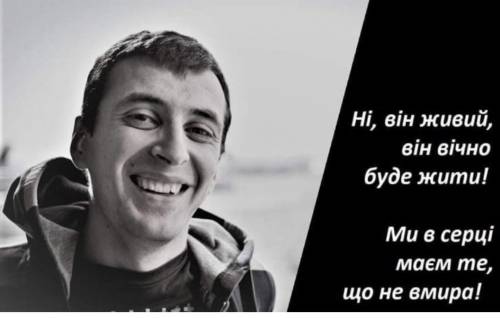
Latest News
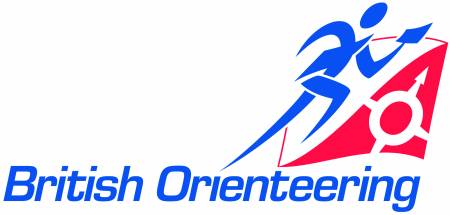
Job Opportunity: Chief Executive Officer (CEO) - British Orienteering
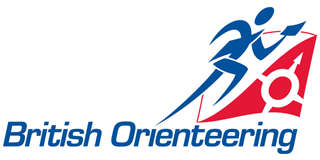
Now available: A draft copy of the Rules of Orienteering effective 1/01/2025
